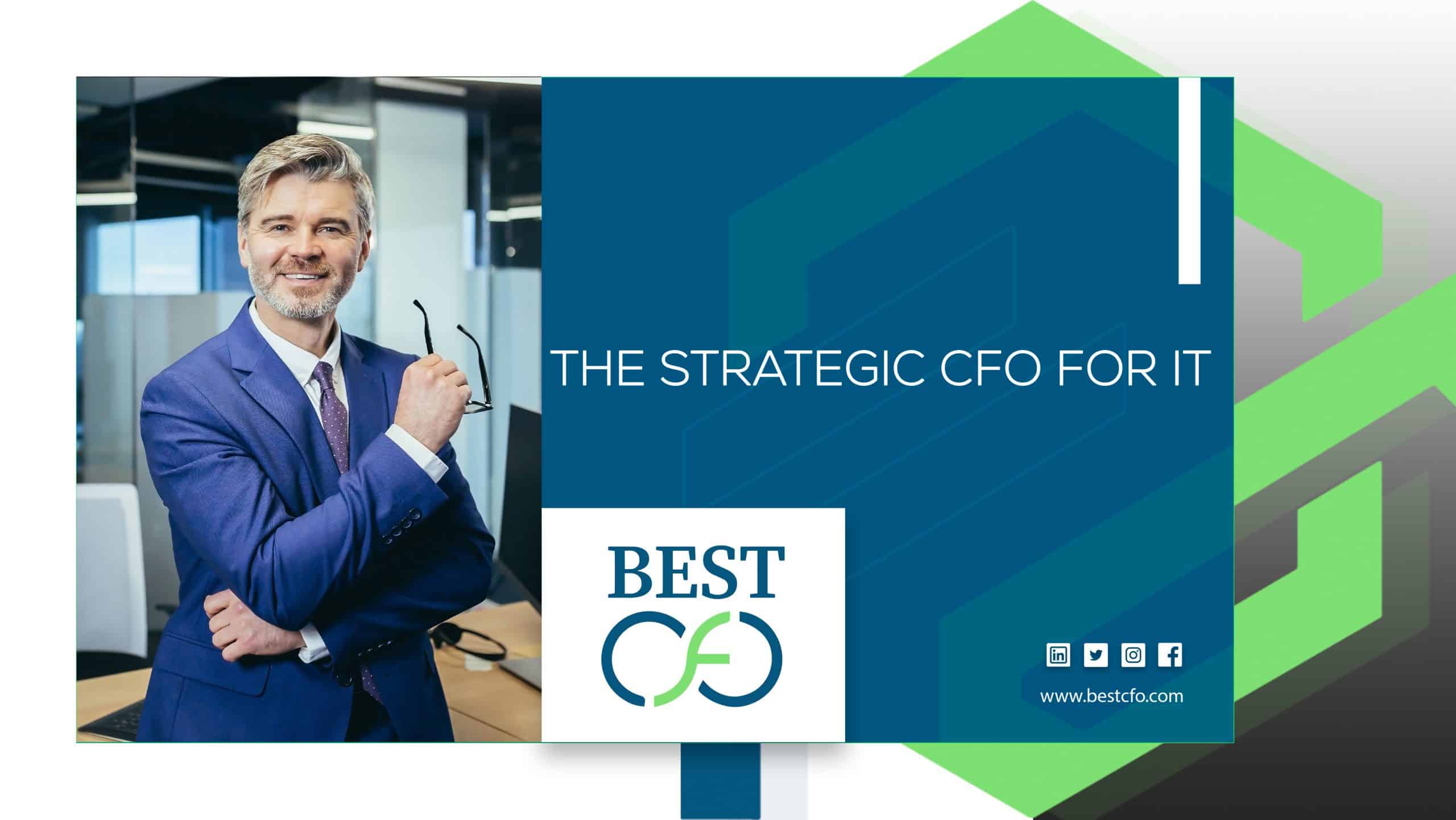
| Getting your Trinity Audio player ready... |
The Role of CFO in Startup vs. Corporate
In the modern fast-paced business environment, a Chief Financial Officer (CFO) is responsible for keeping companies on an upward trajectory. Whether it is an emerging startup company or an established corporate company, the CFO maintains the company’s finances in check. The role, however, differs greatly in startups as compared to corporations. This blog discusses the role of CFO startup vs. corporate finance in detail, from abilities to challenges to how they contribute to making a business thrive.
What is a CFO?
A Chief Financial Officer (CFO) is the top person in charge of managing a company’s money. They look after budgets, spending, profits, and make sure the company stays financially healthy. The CFO also works with the CEO and other leaders to make big decisions that shape the future of the business. But over the past few years, the CFO career path has changed dramatically, and it has been fueled in large part by the increased presence of private equity and by the explosion of IPOs, especially within industries such as biotech, pharma, and tech.
What Are CFOs’ Key Responsibilities?
CFOs do a lot more than just handle the books. Their main tasks include:
- Creating and managing budgets
- Checking financial reports and data
- Making smart plans for spending and saving
- Watching over taxes and rules
- Guiding the company’s money decisions
They help answer important questions like: Are we making a profit? Can we afford to hire more people? Is this the right time to expand?
Benefits of Having a CFO
Having a CFO—whether full-time, part-time, or through an outsourced fractional CFO service—can make a big difference. A strong CFO helps businesses:
- Save money by cutting waste
- Plan for the future with good financial strategies
- Avoid legal and tax problems
- Attract investors with clear financial plans
- Make better business decisions
Even small startups can benefit from CFO support, especially through CFO services that are more flexible and budget-friendly.
CFO Qualifications and Skills
Qualifications
CFOs often have degrees in finance, accounting, or business. Many also have extra training like a CPA (Certified Public Accountant) or an MBA (Master of Business Administration). These give them the knowledge needed to manage complex money matters.
Finance Skills
A good CFO must know how to:
- Financial governance: Make reports that clearly show how the company is doing.
- Financial markets analysis: Understand what the numbers mean and find ways to improve.
- Cost management: Keep spending under control and find better ways to use money.
- Regulatory understanding: Follow the rules around taxes, accounting, and other legal areas.
- Cash flow optimization: Make sure there’s enough money coming in to pay bills and invest.
- Investment strategy: Help choose where to put money for future growth.
Management Skills
CFOs also need strong people and planning skills:
- Leadership: Guide their team and support other managers.
- Innovation: Find new ways to solve financial problems.
- Communication: Explain financial info clearly to others.
- Risk Aversion: Spot and reduce risks that could hurt the business.
- Long-term planning: Look ahead and help the company grow safely over time.
Soft Skills
Great CFOs also show:
- Emotional intelligence: Understand people and work well with different teams.
- Reliability: Be someone the team can count on.
- Adaptability: Adjust quickly when things change.
- Critical thinking: Solve tough problems wisely.
- Conflict resolution: Handle disagreements in a calm, fair way.
- Good judgment: Make smart choices even under pressure.
Member of the CFO’s Team
A CFO doesn’t work alone. They lead a team that helps manage the company’s money.
Controller
The controller handles daily accounting tasks like tracking spending, paying bills, and making sure reports are correct.
Treasury
This part of the team focuses on managing cash, loans, and investments to make sure the company always has enough money on hand.
Strategy and Forecasting
This team helps the CFO plan for the future by predicting income, spending, and other financial trends.
Top 5 CFO Challenges
Even the best CFOs face problems. Here are some of the biggest challenges they deal with:
Balancing Cost Efficiency
CFOs must find ways to save money without hurting the company’s ability to grow or offer quality products and services.
Data Governance
They need to make sure financial data is correct, safe, and used in the right way. This is especially tough with so much digital data today.
Adopting ROI-Driving AI Tools
New tech like AI (Artificial Intelligence) helps companies work smarter. But it’s up to the CFO to decide which tools are worth the cost and how to use them well.
Juggling Growing Responsibilities
CFOs are now involved in many areas, from tech to hiring. It can be hard to manage all of these roles while staying focused on the company’s finances.
Sourcing Tech-Savvy Talent
Finding finance workers who also understand tech is a big challenge. The best teams need both money skills and digital smarts.

CFO in Startup vs Corporate: Key Difference
The role of CFO in startup vs. corporate is not the same. While both manage money, their day-to-day jobs can be very different. Let’s break it down.
Aspect | Startup CFO | Corporate CFO |
Team Size | Small or solo operation | Large finance team with multiple departments |
Main Focus | Survival, growth, and fundraising | Strategy, risk control, and long-term planning |
Decision Making | Fast, flexible, and hands-on | Slower, structured, and based on data from teams |
Budget | Limited and tightly managed | Larger and more diverse |
Tech Use | Often uses low-cost tools or newer tech | Uses advanced systems, sometimes custom-built |
Role Type | Often part-time or outsourced fractional CFO | Full-time executive with board involvement |
Key Activities | Building systems, pitching to investors, managing cash | Overseeing departments, reporting, scaling operations |
Risk Level | Higher—must adapt quickly to survive | Lower—more established, with structured support |
Involvement | Deeply involved in all areas | Focused on finance, with less day-to-day interaction |
Startup CFO: The Architect of Financial Strategy
A startup CFO usually works with limited money and a small team. They wear many hats, often doing hands-on work like setting up the first budget, building reports from scratch, and helping with fundraising.
Startup CFOs often work part-time or as outsourced fractional CFOs—experts who help the company without joining full-time.
Corporate CFO: The Administrator of Financial Stability
In a big company, the CFO leads a large team. They work more on strategy, long-term planning, and reporting to investors. Corporate CFOs focus on growing the company, managing large budgets, and working with the board of directors.
Role of the CFO in a Startup
In a startup, the CFO:
- Sets up basic money systems
- Financial planning and forecasting
- Helps raise funds from investors
- Makes sure the company can keep running
- Fundraising and capital acquisition
- Plans early growth strategies
- Risk management
- Handles legal and tax setups
They are often close to all teams and make fast decisions in a fast-changing environment.
Role of the CFO in a Corporate
In a corporate setting, the CFO:
- Oversees multiple finance departments
- Reports to the CEO and board
- Capital Allocation
- Mergers and Acquisitions (M&A)
- Reviews high-level reports and plans
- Works with banks and investors
- Focuses on long-term profit and growth
They spend more time on big-picture strategy than small tasks.
Conclusion
The role of CFO in startup vs. corporate shows just how much the same job can change depending on the company. In startups, CFOs are hands-on problem-solvers. In corporations, they guide long-term strategy and manage large teams. No matter the size of the business, a strong CFO makes a huge difference.
If you’re looking to grow your business, consider bringing in the best support—whether that’s through hiring or using a trusted CFO service or outsourced fractional CFO. The right financial guide can help your company stay on track and move forward with confidence.
FAQs
Q1: Can startups afford a CFO?
Yes! Many use outsourced fractional CFOs to get expert help without the full-time cost.
Q2: How does a CFO help with growth?
CFOs plan smart budgets, manage spending, and help raise money from investors, all of which boost growth.
Q3: What’s the difference between a controller and a CFO?
A controller manages the books. A CFO uses that info to make big financial plans and decisions.
Q4: Do big companies still need CFO services?
Absolutely. Even large firms need strong leaders to guide financial strategy and planning.
Q5: What makes a good CFO?
A mix of finance knowledge, leadership skills, and the ability to adapt and plan for the future
Related Posts
Do I Need An Accountant As A Sole Trader?
Do I Need An Accountant As A Sole Trader? Are you a sole trader running…
Fractional Finance 101: Unlocking the Power of Micro-Investing
Fractional Finance 101: Unlocking the Power of Micro-Investing Have you ever looked at the price…
Cash or Accrual Accounting: Which One Should You Use?
Cash or Accrual Accounting: Which One Should You Use? Many businesses have a choice between…
Top Accounting System Implementer – QuickBooks & More
Top Accounting System Implementer – QuickBooks & More Choosing the right accounting software is one…
 Demos
Demos  Colors
Colors  Docs
Docs  Support
Support 














